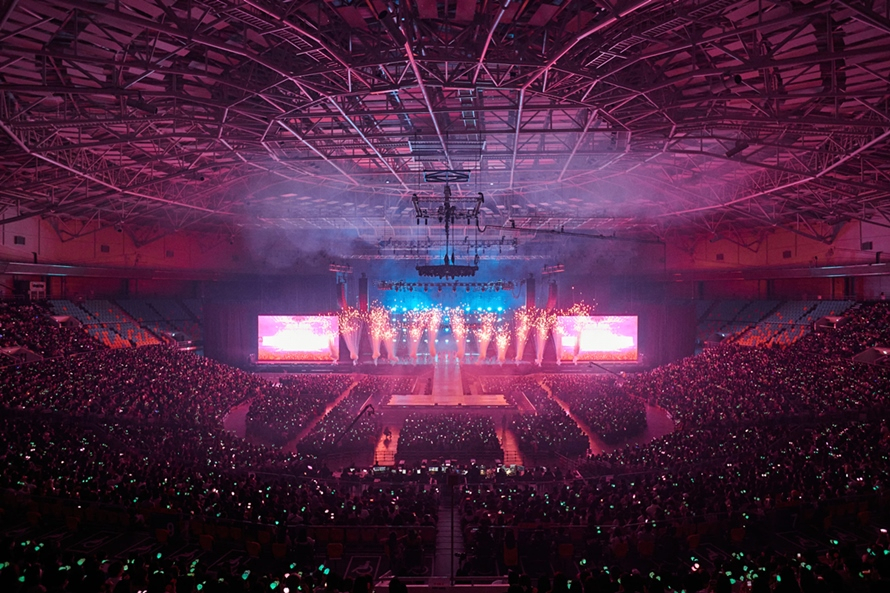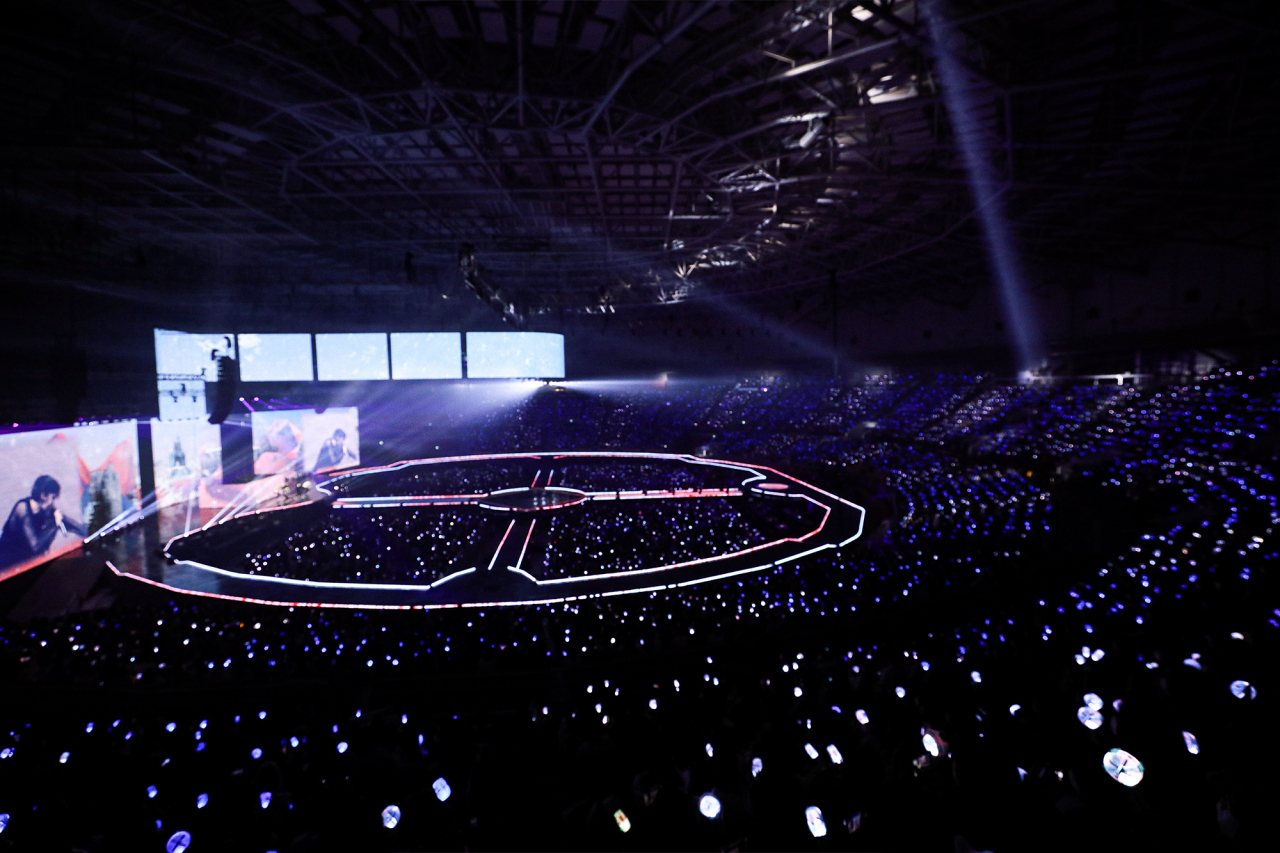Live music is finally back, but K-pop fans feel let down
K-pop concerts in hot water over disappointing experience, pricing issues
By Choi Ji-wonPublished : May 25, 2023 - 16:40

Live music has returned as the pandemic peters out, but its return has been accompanied by higher ticket prices and with a slew of unexpected problems the fans did not pay for.
Just this month, the internet was abuzz following news that a Malaysian lawyer was suing the organizer of K-pop band Blackpink's concerts in his county.
Lawyer Nas Rahman bought two tickets for the band's Kuala Lumpur show from its "Born Pink" world tour. However, on the day of the concert, he discovered that one of the two seats he had paid for did not exist. Rahman had to sit and stand throughout the nearly two-hour show.
Despite attempts to negotiate with the show's organizer, Live Nation and Go Live, for a refund and some compensation for his discomfort, he couldn't reach an agreement with the company and decided to sue them instead, seeking compensation of up to 1 million Malaysian ringgit ($218,000).
Rahman's experience is not an isolated case, with similar complaints coming to light following the quartet's Singapore concert on May 13. After the night ended, fans shared their disappointing experience online, complaining that they could barely see the stage.
A TikTok comment left by a fan who claimed to have bought a VIP ticket for 398 Singapore dollars ($295) read, "This was my first time going to a concert and I saw nothing but their arms," while another wrote, "(I) paid $300 to watch Blackpink from people's phones."
Tickets hit by pandemic inflation
Complaints from fans also focus on the prices of the tickets themselves, with the hyper-inflated prices for gigs now becoming the norm for K-pop fans.
Earlier this month, Thai media MRG Online reported the average price of K-pop concert tickets sold locally this year for around 5,270 baht ($156), up almost 18 percent from the average price of 4,470 baht in 2019 before the pandemic and up 60 percent from 2013.
Outraged Thai fans had taken the issue to the Consumer Protection Agency. Fans of boy band Stray Kids raised the issue in October, claiming the tickets of the band's February concerts -- the highest priced at 8,500 baht -- were too expensive.
The agency, however, said ticket prices are not in its control, explaining the price "is set based on a consensus between sellers and consumers."
Higher ticket prices are an ongoing issue in South Korea as well.
A ticket for Tomorrow X Together's March concert held at the KSPO Dome was 154,000 won ($117) for a regular seat and 198,000 won for a VIP seat. The team's first standalone concert held the previous year in Seoul had all seats sold at 132,000 won.

Last year's most expensive K-pop concert in Korea was Blackpink's show held in October at the KSPO Dome, which sold tickets in packages with prices ranging from 154,000 won to 264,000 won. The group's 2018 gig held at the same venue was priced at 110,000 won per ticket.
Fans complain that the labels are taking advantage of their support for the artists.
The burden weighs on the consumers even more as the ticket purchase is only the first step of the concert spree.
A light-stick -- a must-have item in order to fully enjoy the show these days -- adds 20,000 to 50,000 won to the ticket price. Fans say they are often forced to get a new one as the remotely-controlled item gets upgraded every now and then. Taking an old version, you might find yourself shaking a stick which flashes the wrong color at the wrong time.
Bad behavior continues
Despite bloated prices, fans still pay, becoming an easy target of ticket scalpers.
Scalping has always existed in the world of concerts, but the phenomenon has grown in both scale and number, so much so that it is now coming under legal control.
Taiwan recently passed a law to punish ticket scalpers. The amendment to the country's Development of the Cultural and Creative Industries Act was made after a ticket for Blackpink's Kaohsiung concert surged as high as 400,000 Taiwanese dollars ($13,000), nearly 45 times its original price.
The amendment made it so that anyone who attempts to sell tickets at a price higher than face value would be slapped with a fine up to a maximum of 50 times the original fee, even stipulating a jail term of under three years and a fine of NT$3 million to be imposed on those caught snatching tickets illegally via automated programs.
Some artists have taken matters into their own hands, with singer IU among those who have taken the strictest measure.
For her "Golden Hour" concert held in Seoul last September, the singer's agency restricted all ticket trading outside of the official platform regardless of the profit gained. The company also received reports of scalping and yielded the collected ticket to the reporter, while permanently blacklisting perpetrators from official membership and future concerts.
Dynamic pricing not a solution
To tackle ticket scalping, more local labels are considering the so-called dynamic pricing system -- the latest hot topic issue among K-pop fans.
Dynamic pricing enables ticket prices to fluctuate based on demand. While mostly used by the world's biggest live music company Live Nation's ticketing platform Ticketmaster, more local labels are also opting for it. Hybe recently announced its implementation, the first among the local labels, while Blackpink's UK shows last year were also sold on a dynamic pricing-basis.
Hybe introduced the new pricing system with BTS' member Suga's US tour. A fan on Twitter said she paid $867 for a ticket, more than double its opening price of $350, while another claimed to have seen the price surge to nearly $1,000.
Critics say firms should be more cautious in adopting the system in respect to the unique culture and environment of the K-pop industry.
"K-pop is essentially run by the fandom. Dynamic pricing benefits the company and artists by taking more from the fans, forcing fans to show their love for the artists by paying more," South Korean pop music critic Kim Heon-sik told The Korea Herald.
Kim denounced Hybe's decision to introduce dynamic pricing, saying "it's almost like a game of chicken."
"Fans have to pay blind money for the ticket, and in doing so, competing with each other. The system forces them to turn their backs on other fans and eventually on their own artists," Kim added, stressing there must be a reasonable ceiling to cap the spike.
Negative sentiments are already spreading fast among fans.
While Tour Data on Thursday announced that Suga is the first rapper to earn over $3 million in a single arena-concert in US history, a fan said she feels "on the fence" about his achievement.
"Seeing as this was achieved through dynamic pricing, I have no doubt our Suga would have achieved this without the practice," the fan wrote on her Twitter, adding, "It's sad that a lot of fans had to potentially go into debt to pay for this."
Using the system is their choice, but the price for it will be shared by the consumers and the whole industry, critics added.
"In K-pop, when one company starts something new, the rest tend to follow. So it's likely that dynamic pricing will become more common, but I'm worried it will harm the industry," Jung Min-jae, another Seoul-based pop music critic, said in a phone interview.
Those who benefit will see profit, while others will be priced out eventually.
"Ticket prices have surged following the pandemic, and that in itself is already weighing on the artists. Many singers who held sold-out shows in the past aren't able to this year because of the spike in ticket prices. It's time that companies address the issue, (taking into account) what is good for the artists in the long term," Jung warned.








![[Graphic News] More Koreans say they plan long-distance trips this year](http://res.heraldm.com/phpwas/restmb_idxmake.php?idx=644&simg=/content/image/2024/04/17/20240417050828_0.gif&u=)
![[KH Explains] Hyundai's full hybrid edge to pay off amid slow transition to pure EVs](http://res.heraldm.com/phpwas/restmb_idxmake.php?idx=644&simg=/content/image/2024/04/18/20240418050645_0.jpg&u=20240419100350)







![[KH Explains] Hyundai's full hybrid edge to pay off amid slow transition to pure EVs](http://res.heraldm.com/phpwas/restmb_idxmake.php?idx=652&simg=/content/image/2024/04/18/20240418050645_0.jpg&u=20240419100350)

